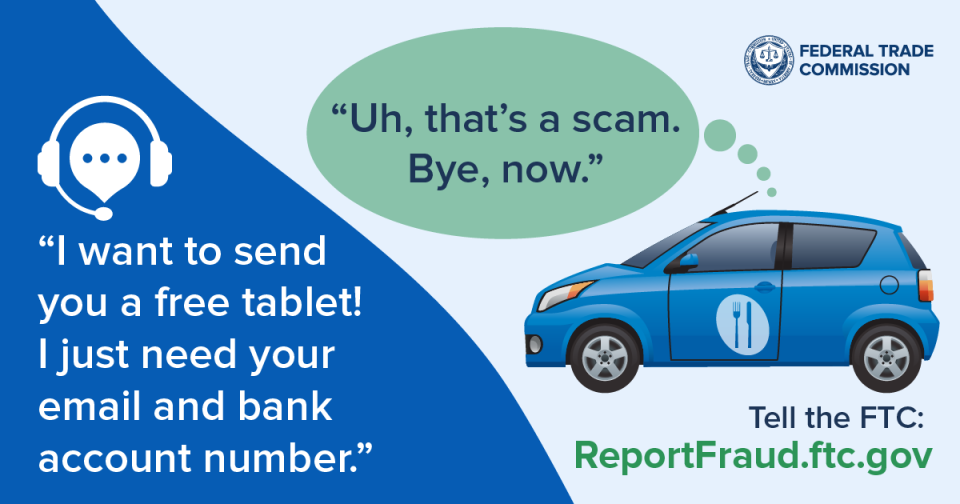You may have heard about food delivery services like DoorDash or Uber Eats: you order through a restaurant’s website or a delivery service’s mobile app and drivers deliver your food. We’re hearing about a new scam targeting food delivery drivers and restaurants.
Scammers posing as “support” from food delivery services are contacting delivery drivers and restaurants and trying to steal their personal and financial information.
In one scenario, the scammer tells delivery drivers and restaurants they’re sending a free tablet or printer to handle food delivery orders. To do that, they say, they need to “verify” your phone number, email and login, Social Security number and bank account to send the equipment.
In another scenario, the scammer says they need the driver’s email or bank account because there’s a problem with an order, or they want to refund them money from a canceled order. After getting the driver or restaurant owner’s email, the scammer may ask for an email verification code...which you never want to share.
If you get requests like this, no matter where you work: Stop. Here’s how to avoid the scams.
- Don’t give your personal or financial information to someone who unexpectedly calls, texts, or emails you. They may be trying to steal from you.
- If you think the request is legitimate, contact the business directly. But use a phone number you know is real or a website or app you found yourself.
- Never share an email verification code with someone if you didn’t contact them first. Scammers are after your information and money. Sharing verification codes makes it easier for them to pretend to be you. Once they’re “you,” they have access to your accounts and can take your money.
Find out what to do if you paid a scammer or gave a scammer your personal information.
And if you spot these scams, tell the FTC at ReportFraud.ftc.gov. When you report a scam, you help the FTC and other law enforcement agencies stop scams.






Comments
Thanks for the alerting will…
Thanks for the alerting will tell my sister who orders her meals from the restaurants and usesdoordash.